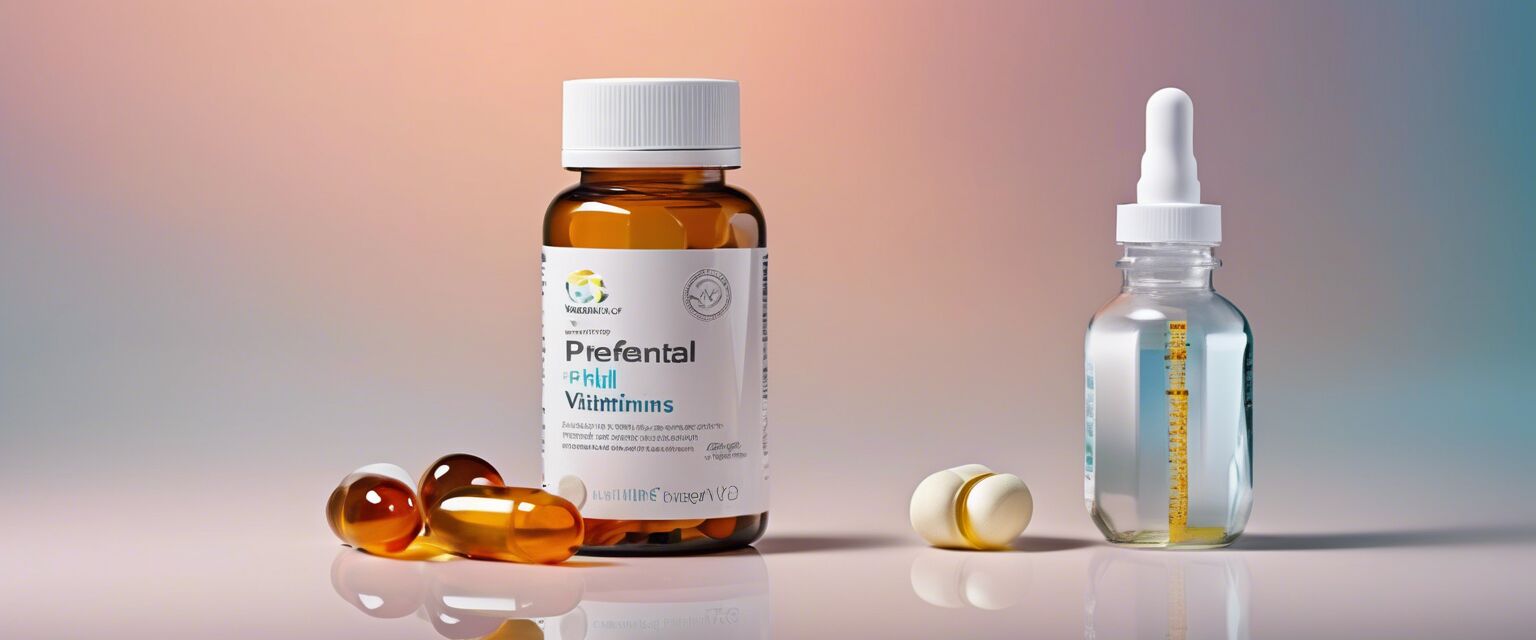
Comparing Liquid vs. Pill Prenatal Vitamins
Key Takeaways
- Liquid prenatal vitamins may offer easier absorption for some mothers.
- Pill prenatal vitamins are often more convenient for on-the-go lifestyles.
- Consider personal preferences, dietary restrictions, and health needs when choosing.
- Both forms can be beneficial when they meet your nutritional requirements.
When it comes to prenatal vitamins, expecting mothers often find themselves faced with a vital decision: should they choose liquid or pill-form supplements? Each option comes with its unique set of benefits and drawbacks. In this article, we will dive into a detailed comparison of liquid vs. pill prenatal vitamins, helping mothers make an informed choice that best supports their health and that of their babies.
Understanding Prenatal Vitamins
Prenatal vitamins are specially formulated supplements designed to provide essential nutrients to expecting mothers. These nutrients play a critical role in supporting the health of both the mother and the developing baby. While many women may be aware of the importance of prenatal vitamins, the choice of format can sometimes be overlooked.
What are Liquid Prenatal Vitamins?
Liquid prenatal vitamins are solutions or syrups that supply essential vitamins and minerals in a liquid form. This format can sometimes make them easier to consume, especially for those who may have difficulty swallowing pills.
What are Pill Prenatal Vitamins?
Pill prenatal vitamins come in various forms, including tablets, capsules, and gummies. They’re a more traditional option and widely available in pharmacies and health stores.
Benefits of Liquid Prenatal Vitamins
- Improved absorption: Liquids may be absorbed more quickly in the digestive tract.
- Ease of consumption: Ideal for those who struggle with swallowing pills.
- Customizable dosages: Can easily adjust the amount based on personal dietary needs.
Benefits of Pill Prenatal Vitamins
- Convenience: Easy to carry and consume at any time without the need for measuring.
- Variety: Available in many types, including slow-release options.
- Shelf stability: Generally have a longer shelf life compared to liquid forms.
Drawbacks of Liquid Prenatal Vitamins
- Shorter shelf life: Once opened, liquid vitamins typically expire more quickly.
- Taste: Some may find the flavor unpalatable.
- Messy: May require careful handling to avoid spills.
Drawbacks of Pill Prenatal Vitamins
- Swallowing difficulties: Some women may struggle with taking large pills.
- Digestive issues: They can sometimes cause stomach discomfort for certain individuals.
- Absorption: The body may absorb some types of pills more slowly than liquids.
Which Is Better for You?
The best choice ultimately depends on individual preferences, dietary needs, and personal circumstances. Here are a few factors to consider:
| Factor | Liquid Vitamins | Pill Vitamins |
|---|---|---|
| Ease of Take | Easy for those who can't swallow pills | May be difficult for some individuals |
| Absorption Rate | Quicker absorption | May take longer to absorb |
| Portability | Less portable and may spill | Highly portable |
| Flavor | Can be flavored, but may vary | No taste (or may have a flavor in gummies) |
Personal Considerations
It’s essential to consider any dietary restrictions, allergies, and specific health needs. For example, those with certain conditions may need to avoid certain additives or ingredients commonly found in prenatal vitamins. If you want to explore dietary considerations while choosing supplements, check our guide on healthy pregnancy tips.
Key Ingredients to Look For
Regardless of the form you choose, certain essential ingredients should always be in your prenatal vitamins. Key nutrients include:
- Folic Acid: Critical for fetal development.
- Iron: Important for blood production during pregnancy.
- Iodine: Supports cognitive development.
- Calcium: Essential for bone health for both mother and baby.
Consulting Your Healthcare Provider
Before making any decisions regarding prenatal vitamins, it’s wise to consult with a healthcare provider. They can help assess your nutritional needs and recommend the best options tailored to your circumstances.
Frequently Asked Questions
1. Can I switch between liquid and pill prenatal vitamins?
Yes, many women find it beneficial to switch forms based on their changing preferences or needs during pregnancy.
2. Are liquid prenatal vitamins more expensive?
Pricing can vary based on brands and formats, and some liquid options may be more costly than pills. Always compare and look for the best value.
3. How do I find the right dose for me?
Your healthcare provider can guide you in determining the appropriate dosage based on your individual health and nutritional needs.
Tips for Choosing Prenatal Vitamins
- Research brands that focus on quality and transparency in ingredients.
- Look for third-party tested products to ensure safety and efficacy.
- Consider subscription-based services for ongoing supplements if preferred.
- Check reviews and ratings from other expecting mothers when possible.
Pros
- Liquid vitamins may enhance absorption for better nutrient uptake.
- Pill vitamins are easy to store and transport.
- Both options are designed to support the health of mothers and babies.
Cons
- Liquid vitamins can be messier and might not be suitable for some.
- Pills can be challenging for those with swallowing difficulties.
Conclusion
Choosing between liquid and pill prenatal vitamins can be challenging, but understanding the benefits and drawbacks is crucial. Each format has its advantages, and there's no right or wrong choice — just what works best for you. Be sure to consult your healthcare provider for personalized recommendations tailored to your unique needs.
For more information on prenatal vitamins, be sure to check our other informative articles in the Buying Guides section where we simplify the decision-making process.
